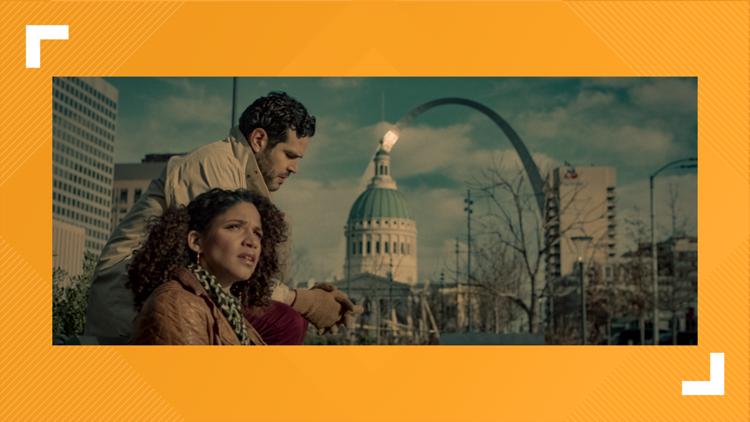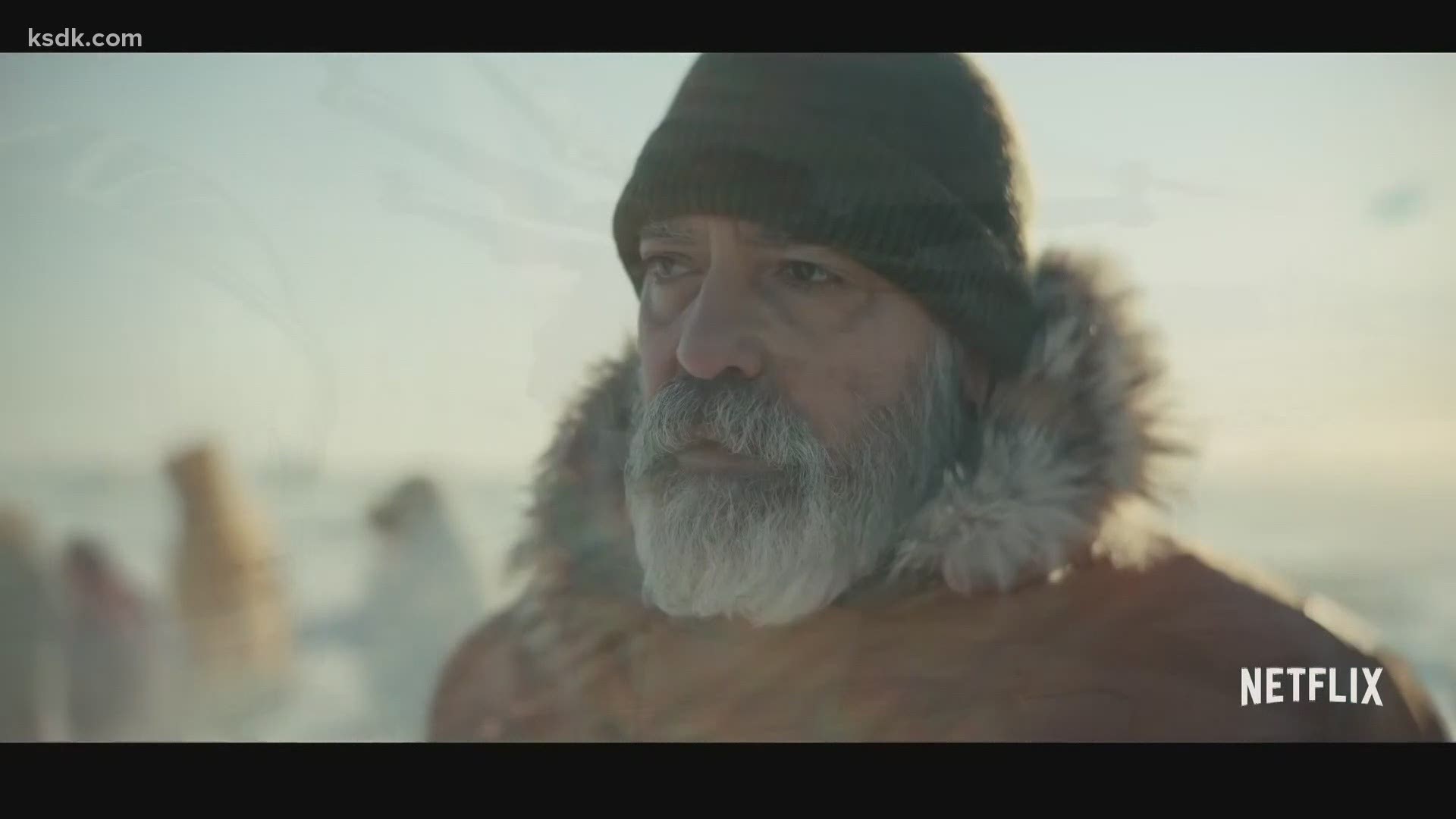ST. LOUIS — Nate Myers' "After We're Over" is about the intertwined relationship between two people and a city, how the ties that bind often attach themselves to a place that unites two strangers. But for the first time in a movie in quite some time (maybe forever), St. Louis gets the proper cinematic treatment. A reverberating pulse throughout Myers' tale, the Midwest flyover state could be listed as a supporting character.
"I bet it used to be beautiful."
"Still is."
Go ahead and toss out the photoshopped picture of the Arch or the standard "the characters are driving across the Poplar" stockpiled footage, because the "Lou" finally gets the proper showcase on the big screen. It revolves around Zelzah (Adrienne Rose White) and Sazerac (Chris Mollica), a couple who broke up a year ago when he took his artistic talents to New York. When he returns for an art show in the old neighborhood, the two take a tour of the city where they fell in love and try to reassemble the pieces of their romance that still carry a heartbeat. What unfolds over the lean 80-minute runtime is not exactly what you expect from a film carrying this particular look and playing in a crowded genre.
Myers, a St. Louis native, thankfully isn't interested in the standard romance that Hollywood usually churns out on a monthly basis. Instead of following that boring playbook, Myers and his co-leads take a more heady approach at the idea of love and companionship. What audiences get instead is an honest portrayal of how relationships evolve, or fail to, over time and how sex and individualism play a big part in that transformation.
It's White's face that the film opens and closes on, the force of nature swirling around a guy that can walk back into her life without a cheat code and gain access after 365 days apart. If "After We're Over" has a moral compass, it's White and she seizes the moment. While you can catch her in an Amazon Studios series and various film and television roles over the past decade, this is the role that should open some eyeballs in the land of make believe.
The St. Louis native injects so much sophistication and fire into her portrayal of Zelzah, a woman who may love her city and its history more than one mortal man. In most romantic dramas, the girl is dished a one-dimensional role that never really digs away at anything meaningful. White's Zelzah wants to know why the roles of a man and woman in a relationship are so set in stone. She also makes her hometown proud by tossing out the best putdown of Chicago in film history, which caused me to rewind that scene a couple times and laugh my "Budweiser is so much better than Old Style" heart out.
Mollica, who looks and talks like a young Adam Carolla, turns in a fine performance alongside White, adding unexpected complexity to Sazerac. He has a likeable restraint that plays a key part in the movie's best scenes, where White's ferocity syncs up perfectly with Mollica's dry human angst.
Playing a guy battling anxiety who asks unanswerable questions about the state of the world and the people he comes into contact with could have played a tad on the overwhelming side, but Mollica harnesses it nicely. You don't hate Sazerac for leaving the relationship, so that allows the actor to actually build a character instead of merely playing a type.
Like his stars, Myers' script carries a distinct edge to it. The way that Zelzah and Sazerac talk, discuss, and deconstruct aspects of their relationships and tie it to the city is fresh and enlightening, instead of strangling and depressing. The screenplay juggles the timeline a bit, taking us back to the blooming rose period of their relationship and pulling us through the good, bad, and ugly of their romance. It's not forced or repetitive; the conversations are fluid and work off instinct instead of a choreographed interaction. For the bulk of "After We're Over," we are interlocked with two people and a city, taken on walks around the landmark and popular locales around town.
The Peacock Diner, Blueberry Hill, Forest Park, and a series of recognizable street intersections have cameos here, something that longtime residents of the S.T.L. haven't seen it thoroughly on film in quite some time-or ever. While Jason Reitman's George Clooney-led film, "Up in the Air," featured a moderate amount of the city, Myers' film takes the crown as the most intimate love letter.
"After We're Over" thinks about things that aren't often or this extensively discussed in film. There's a little magic in the script too, dialogue exchanges tossing a fresh spin on well-known arrangements. A particular method the couple uses to discuss the most uncomfortable matters is earnest instead of overly cute, and another scene where the process in which people appreciate art is high grade. The understated score is patient, waiting for the words to stop in order to make a statement of its own.
The performances and writing aside, the spotlight on a forgotten cinematic city is the real takeaway here. St. Louis lives and breathes in the background of this unusual and intelligent film, detailing how a city can be tied directly to a relationship, even after it's over.
"After We're Over" has its world premiere last week at the St. Louis International Film Festival. Keep an eye on its social media accounts for upcoming release dates and festival showings.



